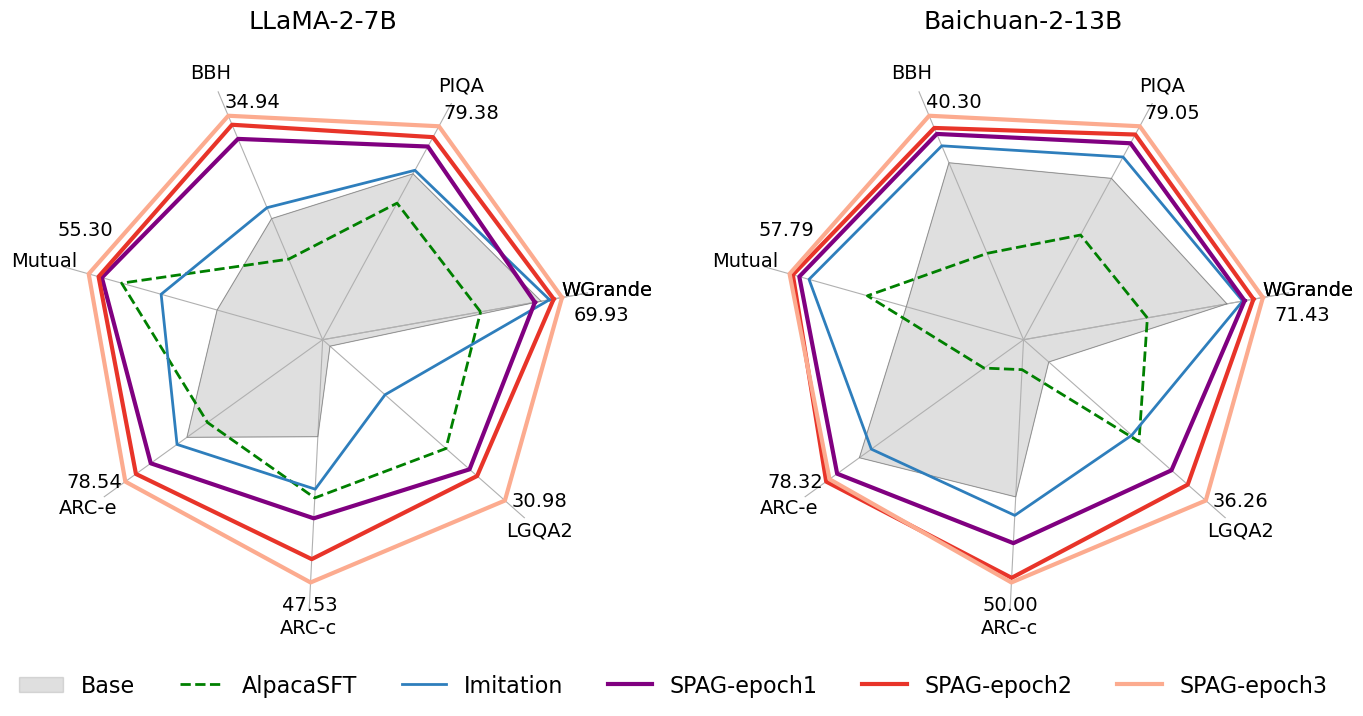Self-playing Adversarial Language Game Enhances LLM Reasoning
We explore the self-play training procedure of large language models (LLMs) in a two-player adversarial language game called Adversarial Taboo. In this game, an attacker and a defender communicate with respect to a target word only visible to the attacker. The attacker aims to induce the defender to utter the target word unconsciously, while the defender tries to infer the target word from the attacker's utterances. To win the game, both players should have sufficient knowledge about the target word and high-level reasoning ability to infer and express in this information-reserved conversation. Hence, we are curious about whether LLMs' reasoning ability can be further enhanced by Self-Play in this Adversarial language Game (SPAG). With this goal, we let LLMs act as the attacker and play with a copy of itself as the defender on an extensive range of target words. Through reinforcement learning on the game outcomes, we observe that the LLMs' performance uniformly improves on a broad range of reasoning benchmarks. Furthermore, iteratively adopting this self-play process can continuously promote LLM's reasoning ability. The code is at https://github.com/Linear95/SPAG.
PDF Abstract

 MMLU
MMLU
 PIQA
PIQA
 MuTual
MuTual